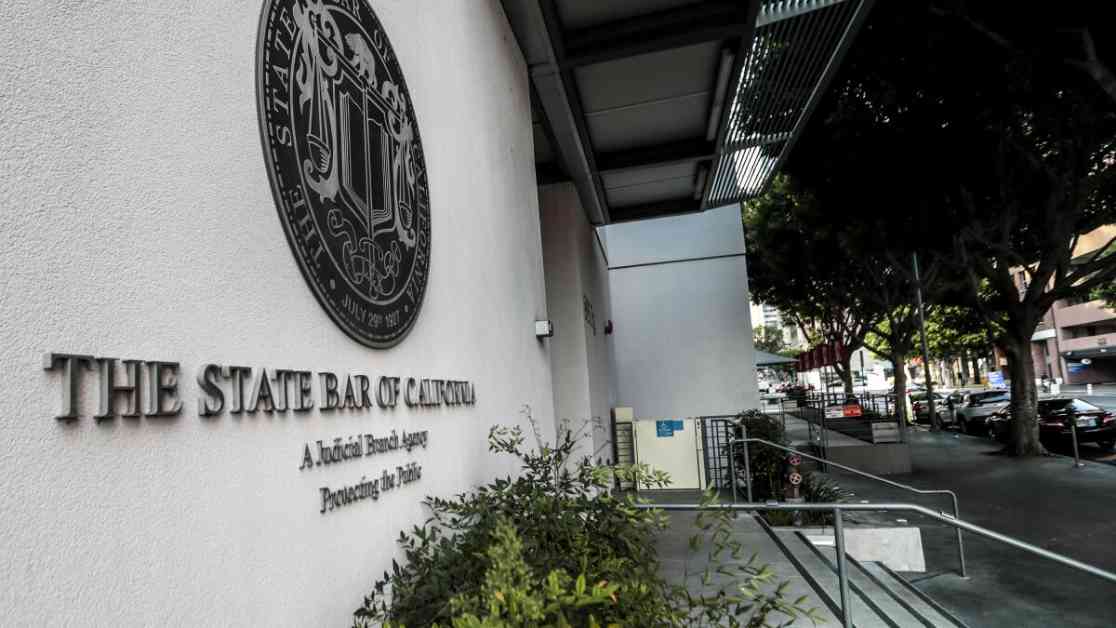After California’s bar exams were marred by technical glitches, the State Bar of California is considering a shift back to in-person testing. Donna Hershkowitz, the chief of admissions for the State Bar, expressed concerns about the performance of the vendor, Meazure Learning, during the February Bar Exam. In light of these challenges, the State Bar’s staff is recommending a return to in-person exams for the upcoming July session.
The State Bar’s Board of Trustees is set to convene on March 5 to deliberate on the future of the bar exams and potential solutions for affected test takers. As the State Bar assesses whether Meazure Learning fulfilled its contractual obligations, the focus remains on remedial measures for those impacted by the testing mishaps. While the exact financial implications of this situation are still unclear, the State Bar has emphasized its commitment to resolving the issues at hand.
One of the primary motivations behind the State Bar’s exam overhaul was cost savings. In response to a significant budget deficit, the agency opted to transition away from the Multistate Bar Examination to a new testing format that combined in-person and remote elements. Partnering with Kaplan Exam Services for question creation and Meazure Learning for administration, the State Bar aimed to streamline the exam process and reduce expenses.
However, the shift towards remote testing encountered numerous challenges, with test takers reporting a range of issues from technical disruptions to problematic test questions. The dissatisfaction with the testing experience prompted the State Bar to reevaluate its approach and consider reverting to a more traditional testing model. As the State Bar grapples with the fallout from the recent exam administration, voices from within the legal community are advocating for a thorough examination of the underlying issues.
State Bar Contemplates Remedial Measures
While the focus has largely been on the technical shortcomings of the testing platform, deans from California’s leading law schools have highlighted additional concerns. In a joint letter to the California Supreme Court, the deans underscored the need for proactive solutions to support test takers who faced challenges during the exam. Proposing the idea of provisional licensure for unsuccessful applicants, the deans emphasized the importance of providing a safety net for aspiring attorneys navigating the bar exam process.
The call for a return to using Multistate Bar Exam questions and addressing the systemic issues within the testing framework reflects a broader consensus among legal educators. Erwin Chemerinsky, the dean of UC Berkeley School of Law, commended the State Bar’s decision to reconsider in-person exams, underscoring the importance of aligning with national standards for exam content. By acknowledging the broader implications of the testing debacle, legal experts are urging a comprehensive reassessment of the State Bar’s examination protocols.
Challenges and Considerations for the Future
As the State Bar grapples with the aftermath of the disrupted bar exams, questions linger about the financial impact and logistical hurdles ahead. The transition to a hybrid testing model was intended to yield cost savings, yet the recent events have raised doubts about the feasibility of this approach. With test takers expressing concerns about the practicality of in-person exams and the associated costs, the State Bar faces a delicate balancing act in charting the course for future exam administrations.
The need for a collaborative dialogue among stakeholders, including the California Supreme Court, underscores the complexity of the issues at hand. Legal educators, test takers, and regulatory bodies must work together to forge a path forward that upholds the integrity of the bar exam while addressing the evolving needs of aspiring attorneys. By fostering a spirit of cooperation and innovation, the legal community can navigate the challenges posed by the recent testing disruptions and emerge stronger and more resilient.
In conclusion, the State Bar’s decision to reconsider its approach to bar exams in response to the recent technical failures marks a pivotal moment in the evolution of legal education and assessment. As stakeholders across the legal community come together to address the fallout from the disrupted exams, a renewed focus on collaboration, transparency, and accountability will be essential in shaping the future of bar admissions in California. By learning from past missteps and embracing a spirit of continuous improvement, the State Bar can chart a path towards a more robust and equitable exam system for aspiring attorneys.





















